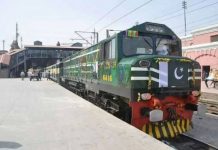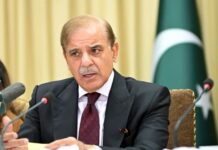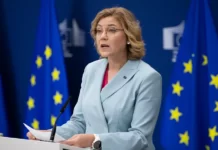At long last, the Shehbaz Sharif government has decided to bite the bullet. Finance minister Miftah Ismail has finally announced a Rs. 30 per liter increase in the price of petrol, beginning the process of actions that are expected to bring the IMF program back on track. This should not have taken as long as it did, but now that the government has decided to expand political capital in the near-term to stabilize the economy, Pakistanis can breathe a sigh of relief.
It is likely that the government will announce further painful measures in the coming days, including an increase in electricity tariffs. There will be the usual howls about how citizens are being burdened, something that the leading parties in the current coalition government are also guilty of when they were in opposition. Inflation is surely going to rise in the coming days and ordinary citizens, beaten down by over 40 percent inflation over the last three and a half years, are only going to experience more pain.
The ongoing economic pain in Pakistan is part of a decades-long decline where Pakistanis have continued to fall behind the rest of their peers in the world. While another dose of the proverbial chemotherapy administered under the careful supervision of the IMF is necessary for the economy, it is important for Pakistan’s elites to recognize that a shock and awe approach, where the economy is rebuilt and restructured from the bottom up, is the only path forward.
Much has been written about what needs to happen: raise taxes from the privileged few and end the subsidies and perks doled out to them, which total over $17 billion annually; reduce the government’s interventions in key markets, especially wheat and sugar; restructure the energy sector through various measures including privatization; and reduce the incentives for investment in Plotistan by raising taxes from real estate and bring an end to recurring amnesties that encourage tax evasion.
The blueprints are there but what is lacking is the political will and courage. This is not a surprise. After all, the very beneficiaries of the status quo are in and around the corridors of power. This elite class has continued to enrich itself from the status quo economy while ordinary citizens have fallen behind the rest of the world. For this class, the good times continue and come what may, they always emerge as the winners.
This elite class, however, should step outside its bubble and take a serious look at the crisis brewing around it. From Karachi to Skardu, a volcano is showing signs of eruption. The anger is manifesting itself through various movements, including tens of thousands of youth marching out in support of Imran Khan, an underprivileged and urbanized class aligning itself with the Tehreek-e-Labbaik Pakistan, and an evolving insurgency in Balochistan whose backbone are young, educated citizens who have had enough of the kleptocracy.
For now, these groups are divided across ethnicity, class, and ideology. But as Pakistan urbanizes and gets connected through digital technologies, these disparate groups are likely to unite to form a tidal wave that will shake the very foundations of Pakistan’s political economy. The majority of Pakistanis are under 25 years of age, meaning that they are entering a phase of their life where they need jobs and growing incomes to meet their ambitions and aspirations. An ossified ruling elite, both civilian and non-civilian, has shown over the last few months that it is simply incapable of understanding what this cohort desires and how angry it is becoming. As the next few years tick by, millions of these citizens will find themselves unable to meet the needs of their elderly parents and young children. What happens at that time is anyone’s guess, but a prudent analysis will lead one to conclude that it will not be a pretty sight.
Which is why it is in the Pakistani elite’s own self-interest to alter the status quo and rebuild Pakistan’s economy. Because if they choose not to reform, reforms will be thrust upon them. The signs are not encouraging so far, but the ongoing crisis and the upcoming budget is an opportunity to begin the long and arduous process for reforms.
The Sharif government seems to have decided to make tough choices. One hopes that they beyond just doing the bare minimum needed to get the IMF program back on track.
























Good analysis and I agree. However, why isn’t Profit covering the plight of the NBP Pensioners who are dieing because NBP worn give them the money bthey deserve and supreme court has approved? Since 2017? Being the wall Street journal of Pakistan, shouldn’t media attention be given?
The 1% and special interest groups will remain the beneficiaries of this rigged system, until they’ve squeezed out whatever they can and it collapses overnight. Pakistan is heading towards default, oil prices have gone higher (and could go higher still), the gov is still subsidizing fuel. IMF needs to demand a complete removal of the subsidy.
Good analysis but why analysis missed out on government dysfunctional Bureaucracy and it’s burgeoning non development expenditure for which government is seeking bail out packages to pay current liabilities.
Reforms are need for the better future.